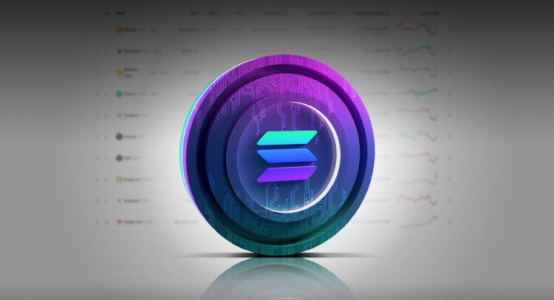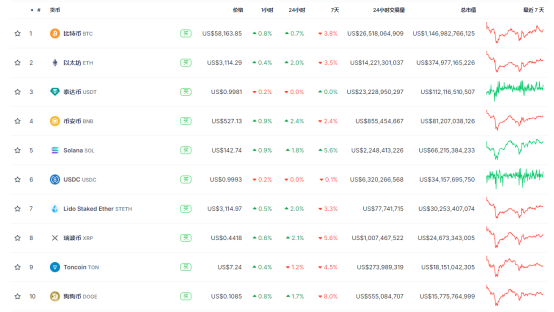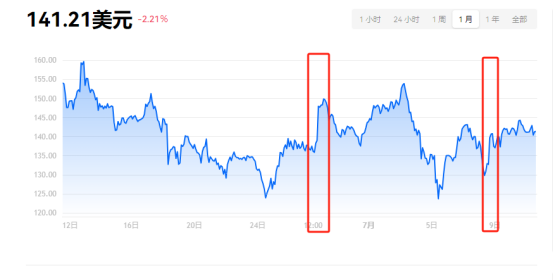Solana spot ETF has officially been put on the approval schedule.
By: Gyro Finance

Following Bitcoin and Ethereum, Solana has also caught the wave of ETF fever.
On July 8th, the official announcement showed that Cboe, on behalf of VanEck and 21Shares Solana ETF, submitted the 19b-4 document to the U.S. SEC, indicating that the SOL ETF has officially entered the approval process. As early as June 28th, VanEck and 21Shares successively announced the submission of the S-1 application for SolanaETF to the U.S. SEC, with VanEck even issuing an open letter to explain this move. Coincidentally, there have been rumors in the market recently that BlackRock may also be applying for a SOL ETF.
Rumors are hard to distinguish, but it is a fact that some institutions are paying attention to this seemingly impossible ETF. Whether this operation is an attempt by institutions to hype the market or an early capture of the market, there is still no conclusion. However, it is certain that whether the application is approved or not, the speculation of SOL has already begun.
Looking back to June, after the successful reversal of the Ethereum ETF, the next ETF became a widely discussed topic in the market. At that time, assets such as BCH, LTC, and DOGE had all been considered as targets, but among them, SOL had the highest voice.
The reason is quite simple. The currency to be applied for an ETF must have sufficient consensus value and market depth, otherwise the issuer will face sales problems. SOL's market value has been among the top five cryptocurrencies for many years. USDT, which is above it, obviously does not meet the application conditions, and BNB is not suitable due to unclear litigation issues in the United States. In comparison, SOL ETF's feasibility is particularly prominent.

The next issue is the closeness of the capital behind it. Although SOL has not deliberately disclosed its capital inclination, due to FTX's high holdings and the widely recognized North American technical community, most people in the market almost all believe that SOL is backed by Wall Street capital. This can also be seen from many projects based on Solana, which are mostly owned by Western camps. SOL has recovered from below $10 to $160 and even reached $200, with the help of institutional capital.
Against this background, on June 27th, the asset management giant VanEck took the lead and submitted the S-1 form for the "VanEck Solana Trust" to the SEC, and the next day, 21Shares followed suit and also submitted the S-1 application. From the documents, both chose the Cboe BZX exchange, with Coinbase as the custodian, and ensured that the fund would not participate in the validation or pledging of SOL.
On July 8th, the Chicago Board Options Exchange (Cboe) officially submitted the 19b-4 document for the VanEck and 21Shares Solana ETF. Once the U.S. SEC confirms this document, the application will enter the approval period. According to the rules, the SEC will have 240 days to decide whether to approve the 19b-4.
Despite the rapid progress of the issuer, there are still bearish voices in the market, and the core issue lies in SOL's historical baggage. The main problem is the attribute judgment. It is well known that the main reason why the Ethereum ETF was considered unapprovable was that the SEC regarded ETH as a security. However, at that time, due to the SEC chairman's evasive attitude, there was no core evidence for this judgment. However, SOL has been explicitly classified as a security.
On June 5, 2023, in the lawsuit against Binance, SOL was listed as a security. On June 6 of the same year, in the case with Coinbase, SOL was also listed as a security, and the SEC's charges against Binance and Coinbase were also for engaging in unregistered securities activities. In June of this year, the SEC, in its charges against Kraken, still insisted that tokens such as SOL, ADA, and ALGO are securities, demonstrating the consistency of regulation.
Being classified as a security means that it must comply with the SEC's disclosure requirements and regulations, and ensure transparency and KYC, which is obviously difficult to achieve for anonymous cryptocurrencies. This has become a key obstacle for SOL ETF. At the same time, as ETFs require a reference spot price, the approval of Bitcoin and Ethereum ETFs requires a leading indicator, which is the ability to trade on the Chicago Mercantile Exchange (CME) in the United States. Currently, apart from BTC and ETH, no other currency meets this requirement.
The next issue is the decentralization problem. Not to mention Bitcoin, its existence time and economic model have determined that its chips have reached a relatively dispersed level. After investigation, Ethereum has also been recognized by regulatory agencies. However, as a new public chain, Solana has only been around for 5 years, and SOL was previously held by FTX for over 10%, showing a lack of decentralization.
In fact, even the issuer is quite hesitant about the above issues. In VanEck's open letter, Matthew, the head of digital asset research, mentioned, "We believe that the native token SOL functions similarly to other digital commodities, such as Bitcoin and Ethereum. SOL's decentralized nature, high utility, and economic viability are consistent with the characteristics of other established digital commodities, which strengthens our belief in SOL as a valuable commodity that can provide use cases for investors, developers, and entrepreneurs seeking alternatives to the duopoly app store."
The use of "we believe" already shows subjectivity, and it avoids discussing the actual attribute issues of SOL, which to some extent shows a lack of confidence. In a recent interview, Matthew even said, "The feasibility of ETFs is not necessarily linked to the futures market. The uranium industry has proven this point. As for the crypto futures market, we believe it can be achieved, but it may require a change in the SEC chairman."
There are many supporters of the view that a change in leadership is needed. According to Eric Balchunas, a senior ETF analyst at Bloomberg, the final deadline for the Solana ETF is mid-March 2025, and this year's election is in November, which means that the final approval will be made by the regulatory group after the change in leadership. He emphasized that "if Biden wins the election, the Solana ETF is likely to be 'stillborn,' but if Trump wins, anything is possible."
Given that both the Republican and Democratic parties have shown favor to the cryptocurrency community, a reversal in reality is not impossible. At a recent cryptocurrency roundtable, Biden's senior advisor Anita Dunn also rarely attended, demonstrating Biden's relatively moderate attitude towards cryptocurrency. However, in other words, even with a change in leadership, can the previous lawsuits be completely ignored? It is more likely that the new members will continue to proceed in a relatively moderate manner, otherwise the function of the SEC may become a joke.
Beyond regulation, the commercial feasibility of SOL ETF has become even more delicate. Many analysts in the market believe that the inflow of SOL ETF will be much lower than that of Bitcoin or Ethereum ETF, which will undoubtedly reduce the profitability of the issuer. Previously, Cathie Wood's Ark Fund withdrew its application for an Ethereum ETF, because the management fees for cryptocurrency ETFs are significantly lower than those for ordinary ETFs due to fierce competition, and the return on investment does not match.
0xTodd pointed out that in terms of market share, the Ark BTC ETF ranks 4th among 11 ETFs, with an annual management fee of about $7 million. However, the conclusion drawn is that they gave up on the Ethereum ETF because it wasn't profitable enough, indicating that Ark does not believe that ETH can reach this level. By the same analogy, in comparison to ETH, SOL's market value is about $66.2 billion, only one-sixth of ETH's market value, and only 5% of Bitcoin's market value. If the limit is $7 million, the issuer should manage at least 20 million SOL, which is about 4.5% of the circulating supply of SOL. However, in comparison, BlackRock, the leader of the Bitcoin ETF, only manages 1.5% of BTC. Lower market value corresponds to higher holdings, which is obviously not cost-effective for the issuer.
In fact, the current situation is not limited to SOL. Even the Ethereum ETF is not without institutional pessimism, with some believing that the net inflow of funds will be at most 15% of Bitcoin's. Of course, there are also optimistic views, with market maker GSR believing that if the SOL ETF is approved, then in a bear market, SOL has 1.4 times the upside potential, under normal circumstances it is 3.4 times, and in a bull market the upside potential will reach 8.9 times.
Compared to SOL, from the perspective of ETFs, Litecoin and Dogecoin have become the preferred coins for analysts to speculate on. After all, both coins have no historical baggage of securities, and their market value is also among the top ten in the cryptocurrency market. BitMEX founder Arthur Hayes and Real Vision CEO Raoul Pal mentioned in their blogs that "Dogecoin ETF may be launched at the end of this cycle."
Overall, whether approved or not, the SOL ETF has opened the way for altcoin ETFs, and there will be more coins attempting to challenge this capital crown in the future. And if the FIT21 bill is passed, the MEME coin ETF may no longer be a dream.
This bill, which has already been passed by the House of Representatives, clearly defines the CFTC's jurisdiction over cryptocurrencies, giving a decentralized determination standard, stipulating that a currency that does not have more than 20% of digital assets or voting rights can be considered a digital commodity rather than a security, which to some extent also clears the way for ETFs. Currently, the bill has been transferred to the Senate, but considering that the Senate may decide to redraft related bills, it will need to go through the committee review stage and then be submitted to the Senate again. Even if it goes directly to the Senate for a vote, FIT21 will still face amendments and additions to the bill, and then it will return to the House of Representatives for a decision and a unified text. This critical bill still has a long waiting period.
On the other hand, the immediate impact is the speculation surrounding SOL. On June 28th, when the application news came out, SOL rose by 7%, and on July 8th, when the 19b-4 form was submitted, SOL rose by 8%. And recently, there have even been rumors from unknown sources that BlackRock is also planning to apply for this ETF.

In terms of price trends, this indeed raises suspicions that it is a capital-driven speculation on SOL's ETF. After all, even if it is not approved, under the continuous push of true and false news during the 240-day approval period, the price is bound to have a support effect, and the success or failure of the election will directly affect the overall market price.
But from the perspective of retail investors, it seems that they are still in a wait-and-see mode regarding this ETF, and are not buying into it yet. There is still a long time to go, and perhaps everyone is waiting for the next ETF with more hope.
免责声明:本文章仅代表作者个人观点,不代表本平台的立场和观点。本文章仅供信息分享,不构成对任何人的任何投资建议。用户与作者之间的任何争议,与本平台无关。如网页中刊载的文章或图片涉及侵权,请提供相关的权利证明和身份证明发送邮件到support@aicoin.com,本平台相关工作人员将会进行核查。



